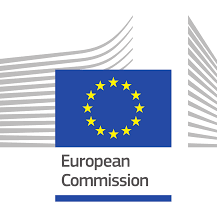Following from yesterday’s EU update, in today’s blog Alan Kennedy, Senior Research Development Specialist (EU & International), updates us on the Horizon 2020 Societal Challenge work programme.
I still can’t believe we’re entering the last stage of Horizon 2020. I remember the consultations on the creation of the 2014-2020 programme, and now we’re doing the same for its successor, Horizon Europe, which I discussed in yesterday’s blog.
But here we are and the European Commission has published the final work programmes. There’s €11 billon of research funding left in the pot of €77 billion of the H2020 budget. There are quite a few changes to the drafts you may have seen circulating, and the topics funded are chosen to complement the European Commission’s 10 priorities for 2015-19.
Under the Societal Challenges programme by far the largest investment goes to the area of ‘low-carbon, climate resilient future’ that accounts for over one third of the funding at €3.7bn. Research Funding is also focused on ‘Circular economy’, ‘Digitising and transforming European industry and services’, and ‘Security of the Union’.
Below are some of the most relevant, interesting, or high budget highlights of the funded topics in the new work programmes:
ICT: applications of robotics, Artificial Intelligence for manufacturing, big data and extreme-scale analytics, blockchain, and next generation IoT.
Nanotechnologies, Advanced Materials, Biotechnology and Advanced Manufacturing and Processing:Creating a marketplace for industrial data, upcycling bioplastics, and novel high performance materials.
Health, demographic change and wellbeing: methodological approaches for improved clinical investigation and evaluation of high-risk medical devices, addressing low vaccine uptake, clinical management and prevention of resistant bacterial infections in high prevalence settings, clinical trials methodology research, health research data, and AI for health imaging.
Food security, sustainable agriculture and forestry, marine, maritime and inland water research and the bioeconomy: Forest soil research, Diversifying revenue in rural Africa through bio-based solutions, Defossilising agriculture – solutions and pathways for fossil-energy free farming, Innovative textiles – reinventing fashion, and Enzymes for more environment-friendly consumer products.
Secure, clean and efficient energy: Big data for buildings, Towards highly energy efficient and decarbonised buildings, Developing the next generation of renewable energy technologies, Increase performance and reliability of photovoltaic plants, Socio-economic research: non-energy impacts and behavioural insights on energy efficiency interventions, smart cities and communities, and Long Term EU-Africa Partnership for Research and Innovation actions in the area of renewable energy.
Smart, green and integrated transport: Cities as climate-resilient, connected multimodal nodes for smart and clean mobility, Improving road safety by effectively monitoring working patterns and overall fitness of drivers, ‘First of a Kind’ solutions for sustainable transport and mobility, and Next generation electrified vehicles for urban and suburban use.
Climate action, environment, resource efficiency and raw materials: Innovative nature-based solutions for carbon neutral cities and improved air quality, Scientific support to designing mitigation pathways and policies, Polar climate: understanding the polar processes in a global context, Developing the next generation of Earth System Models; Improving the sorting, separation and recycling of composite and multi-layer materials, Develop and pilot circular systems in plastics, textiles and furniture sectors, and Raw materials innovation actions: exploration and Earth observation in support of sustainable mining.
Europe in a changing world – Inclusive, innovative and reflective societies: Curation of digital assets and advanced digitisation, Transformative impact of disruptive technologies in public services, Enhancing access and uptake of education to reverse inequalities, New forms of delivering public goods and inclusive public services.
Secure societies – Protecting freedom and security of Europe and its citizens: Prevention, detection, response and mitigation of combined physical and cyber threats to critical infrastructure in Europe, Secure and resilient Artificial Intelligence technologies, Technologies to enhance border and external security, and Cybersecurity in the Electrical Power and Energy System (EPES).
Science with and for Society: Supporting research organisations to implement gender equality plans, Hands-on citizen science and frugal innovation, and Grounding RRI in society with a focus on citizen science
To view all the work programmes go to the Funding and Tenders Portal (formally the ‘Participant Portal’), then the reference documents section, select “Horizon 2020 Framework Programme” from the drop down list on the top left, and under ‘Work Programmes’ the latest documents will appear in the ‘2018-20’ section.
Want to apply?
Yes! But what about Brexit? Well, the UK Government’s underwrite and guarantee will allow UK participation to continue in all Horizon 2020 calls that allow the participation of third countries, which means most of the topics in these work programmes will be open. You can even still lead a project! If Brexit doesn’t happen or a deal is agreed we can continue to participate as normal.
More information
Contact our European and International funding experts in the Research Support Office’s Research Funding team: europe@ed.ac.uk



